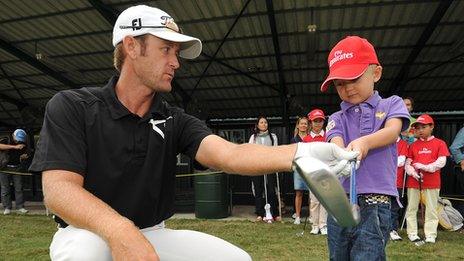George O'Grady: What can next European Tour chief expect?
- Published
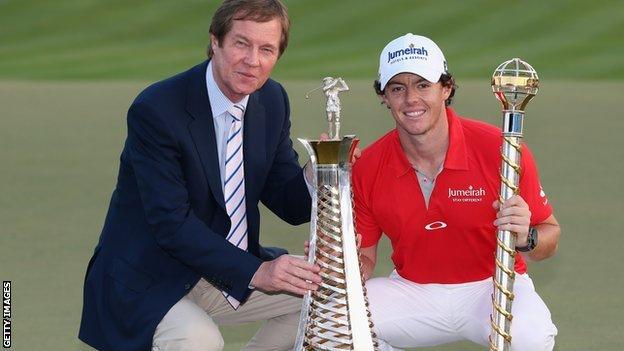
George O'Grady will now take up a presidential role to represent the Tour through the 2016 Olympic Games in Rio de Janeiro
These are changing and challenging times for the European Tour and its next chief executive.
It is still adjusting to the loss of key sponsors and tournaments as a result of the economic downturn of a few years ago, while the growing power and lure of the United States and Asia has won over many of the world's top players.
It means George O'Grady's successor will have his or her work cut out when the 65-year-old eventually steps down in the coming months.
O'Grady has been in charge of the European Tour during the most challenging spell in the organisation's history.
He took over from Ken Schofield in 2005 when it was still enjoying a boom period.
Global economies were strong and the circuit was growing at a rapid rate, but this all changed in the autumn of 2008.
George O'Grady factfile |
|---|
Born 14 April 1949 in Singapore |
Began playing golf aged 10 and played his first round as a junior member of Royal Portrush |
Started his career in golf in 1974 when he joined the British PGA as a tournament administrator |
Became chief executive of the European Tour on 1 January 2005 |
Appointed CBE for services to sport in 2010 Queen's Birthday Honours |
As the ink was drying on the contract O'Grady had negotiated to make the Race to Dubai the circuit's focal point, the full effects of the global banking crisis started to become apparent.
Amid the economic meltdown, traditional European markets, key to the Tour's continental strategy, could no longer afford the millions needed to stage big-time golf.
Tournaments were lost in the heartland territories of Spain and the United Kingdom, while sponsors could rarely be found outside the ever expanding Asian market.
Dubai was also hit hard and it was O'Grady's tenacity that kept alive the new concept of the 'race'.
This process played to his strongest quality, a charisma that could win over royalty, politicians and business leaders.
Pressure was also being exerted from the United States, though. Tim Finchem's PGA Tour introduced the FedEx Cup, which radically altered the golfing calendar.
The post PGA Championship in late August and September suddenly became all about the chase for a $10m (£6.25m) jackpot.
It made total sense for Europe's top stars to set up home in the US, but this did little to help their home Tour.
O'Grady and his 155-strong Wentworth-based organisation have done remarkably well to sustain the current calendar.
However, there has been a feeling among many rank and file golfers that the Tour should be stronger.
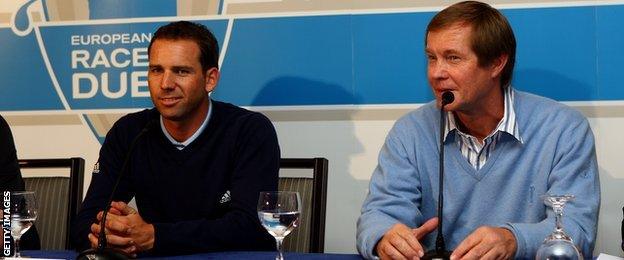
O'Grady apologised after describing many of Sergio Garcia's friends as being 'coloured athletes'
This is why businessman David Williams was appointed to succeed former player Neil Coles as the Tour's chairman at the end of last year.
This was a significant move because it turned a ceremonial position into a corporate role. Williams is an advocate of change and O'Grady's forthcoming departure is symptomatic of that.
"The Tour is now embarking on a new phase in its development and that is why George has considered that it is the right time to ask the nominations committee to find his successor," Williams said.
O'Grady, appointed Commander of the British Empire for services to sport in the 2010 Queen's Birthday Honours, played a massive role in the huge expansion of the Tour.
The Singapore-born Englishman has been with them for 40 years and was the perfect foil as Schofield's second in command for many years.
He was also instrumental in ensuring golf's return to the Olympics in 2016., external
O'Grady was expected to remain as chief executive until the Rio Games but in recent months it became apparent he would leave sooner.
Lately, he has been a more detached figure, shunning the limelight after being caught up in last year's Sergio Garcia "fried chicken" controversy.
O'Grady made a mess of trying to defuse the row by saying that Garcia had "coloured friends" in a television interview.
It was a bad but uncharacteristic error.
When he steps aside that sorry episode cannot be forgotten but should not deflect from a career of high achievement for golf in Europe.
It will be fascinating to see who the Tour appoint as his successor.
O'Grady was only the third man to lead the organisation after Schofield and John Jacobs, and over the years, the natural inclination of the Wentworth set-up has been to promote from within.
Were that to be the case, chief operating officer Keith Waters, already responsible for the main schedule, would be favourite for the post.
But Guy Kinnings, IMG's head of global golf, is likely to attract the interest of the nominations committee, too.
O'Grady will remain in his post until a successor is found. Whoever takes over will be part of a new wave of golf administrators, with Peter Dawson stepping down as boss at the R&A, to be replaced by Martin Slumbers in September next year.
- Published5 November 2014
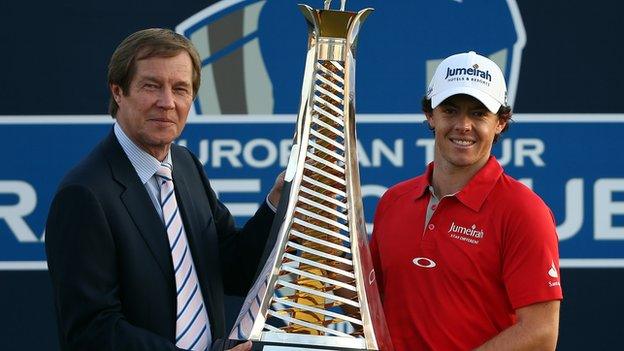
- Published17 May 2014
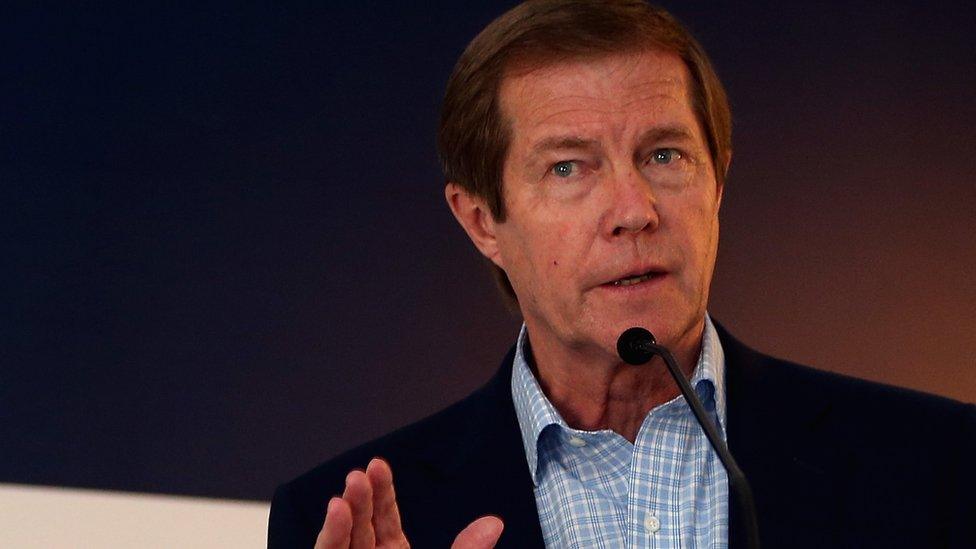
- Published23 May 2013
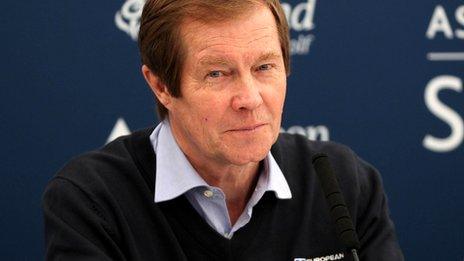
- Published28 September 2018
